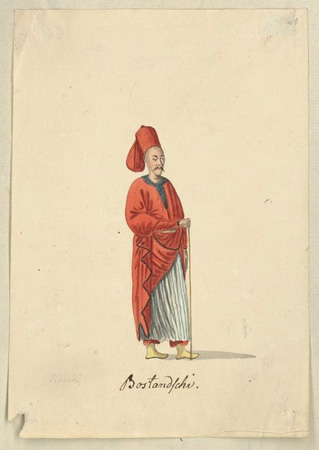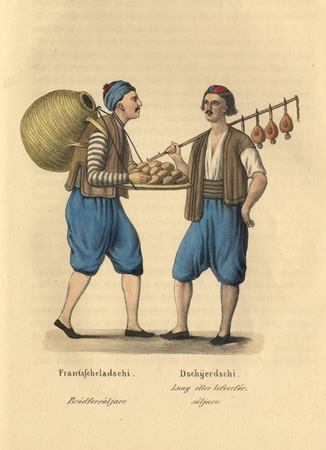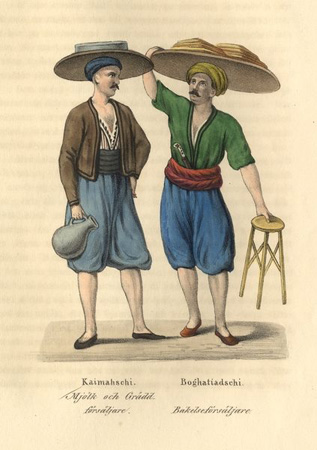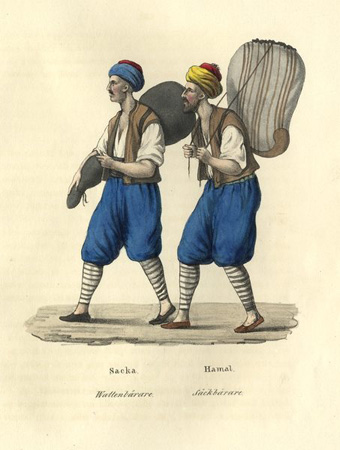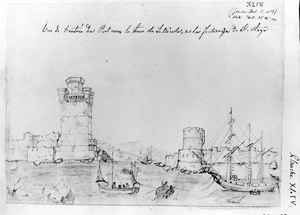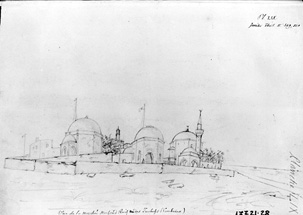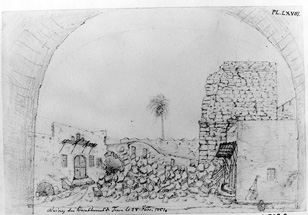
The Interviewees
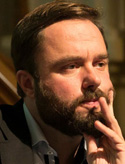
Interview with Erik Bruns, August 2018
A Dutch historian and co-founder in 2009 of the Rhodes International Culture & Heritage Society (RICHeS). RICHeS is an NGO based on the Greek island of Rhodes committed to the promotion of a better understanding and knowledge of the diverse and multilayered cultural heritage of the island, including the island’s unknown but interesting Levantine heritage.
1- What made you come to Rhodes and what was the journey that led to you to establish RICHeS?
My first introduction to Rhodes was in 2000 when I came there, just like almost everyone else, on a short vacation. It was a ‘last minute’, booked through a travel agency and not a particularly conscious choice. I was not very interested in the island in comparison to other places in Greece and did not know much more about it other than it being a typical mass holiday destination. I knew it was not known for its classical antiquities which at that time were still my main interest and reason to visit Greece. Once in Rhodes I was amazed to ‘discover’ its formidable walled town built by the Knights Hospitaller and wondered why this seemed to be so much less known than cities like Carcassonne or Dubrovnik. It became clear to me that, while Rhodes possessed an important cultural heritage, its potential was not fully realized. The island positioned itself, and still does today, mainly as a sun, sand, sea destination and not as cultural one.
In the years after that I returned often and became increasingly interested in all the facets of what turned out to be a very layered and unique cultural heritage, even for the standards of the region. After the Byzantine period Rhodes was successively occupied, for longer and shorter periods, by the Knights Hospitaller, the Ottomans, the Italians, Germans and British before joining Greece in 1947. And all these periods and the various communities of Greek-orthodox, islamic, sephardic and franco-levantine catholics left their specific cultural heritage and their imprint on the character of the island.
After a gap period in which I taught Dutch history and language at the Dutch School in Rhodes the idea arose for the creation of an NGO that would promote knowledge of and interest in this heritage among both residents and visitors. The immediate reason was my notion that there was a need for this due to a lack of interest in and educational programs about this heritage by local authorities. There was very little dissemination of knowledge to the general audience. That’s how the Rhodes International Culture & Heritage Society (RICHeS) was born. Through our events, lectures, exhibitions, concerts and the like, we aim to bridge the divide between academic knowledge and the general audience and try to fill that gap. We were and remain the only civil society organization in the Dodecanese to do this.
2- What achievements are you proud of regarding RICHeS since its inception?
I am most proud of the fact that we have been able to put the diversity of Rhodes’ heritage on the map and that we have shown that the general public in Rhodes is enormously interested in their heritage. We were the first organization ever to pay attention to what was considered sensitive, such as the Ottoman past. Our activities in that field attracted hundreds of visitors. The first opening up of mosques drew even thousands. The same applies concerning other topics such as the Jewish, Italian and also Levantine heritage. I know that many first heard of all these themes through our events and I am proud that in that respect we have been able to contribute to awareness and knowledge of Rhodes’ past.
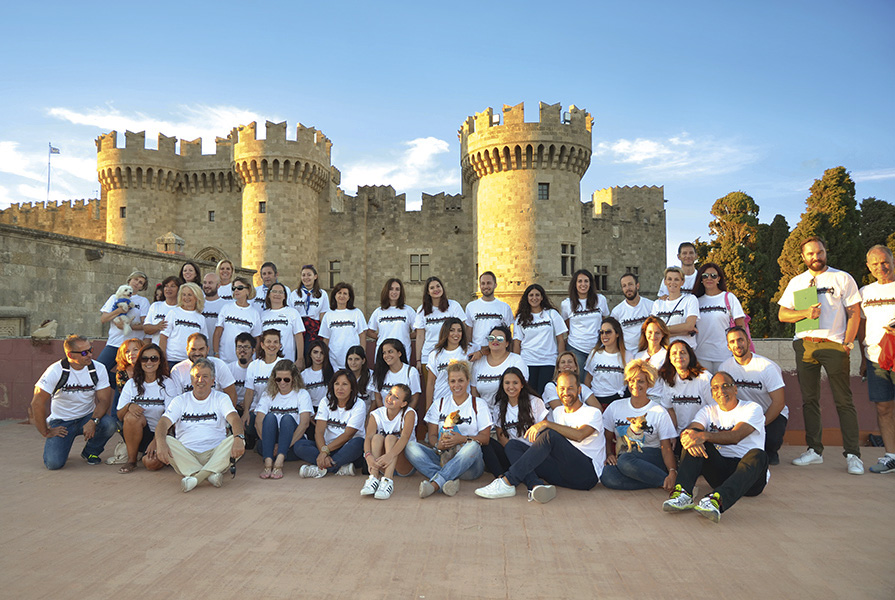
Rhodes RICHeS team 2016.
3- Clearly you have created a team that shares your vision. How do you ensure that the enthusiasm remains amongst the volunteers and how do you keep the spirit fresh to ensure continued participation and visitor numbers?
RICHeS consists of the executive board, several committees and the general body of volunteers. I think that the enthusiasm among volunteers to be part of our events and organization has only increased over the years and with it the willingness to deploy. As our organization became better known we started receiving more and more applications. This also encourages us as a board and shows that we are on the right track. The almost inexhaustibility of the heritage of Rhodes is an important stimulus for ourselves to continue, we always have new ideas and there is so much that can and should be done. In addition, every year we always try to introduce new themes and actions for our recurring events such as the winter academy ‘Studium Generale’ and the ‘Open Doors’ European Heritage Days. We try to be innovative as much as possible. We were the first organization in Rhodes to use QR-codes and two years ago we introduced an augmented reality digital game in cooperation with the University of the Aegean in which participants were placed back in time and learned in a playful way on their smart phones about the Hospitaller history of the island. This may seem obvious to many readers but in Greece such initiatives are still in their infancy. I think that recognizability and continuity are essential for the continuous success of our events, and they should never be predictable. We are doing our best to avoid that.
4- Rhodes seems to have unique features in Greece and there are still Turkish and Jewish minorities living without prejudice. What do you think is the secret behind this tolerance?
As far as I know this very interesting matter has never been studied so I can only speculate, because it is of course a highly complex issue. First of all I do not think that the absence of prejudice is what makes Rhodes special. There was and is a lot of prejudice between the communities and also within them. I do not believe that there is a society in the world where communities live together without prejudice and I would not characterize Rhodes as such. The special thing about Rhodes is that these prejudices hardly or never escalated into violence disrupting what was indeed a quite peaceful coexistence. One reason for this may be that the island was always an Ottoman military post, as a base for the fleet and with a garrison, which guaranteed public order. Equally important must be that the various population groups lived strictly separated from each other. The Muslims and Jews in the walled city and the Christians, both Orthodox and Catholics, in villages around the city and in the countryside. Another factor I think is the fact that the island is fairly large but knew a quite constant population, in the Ottoman period, of around 20,000 - 25,000. There was enough space and the lack of economic development did not lead to increased competition or large scale immigration. Communities remained stable and traditional. There were no large urban proletariates that could be abetted for nationalist inspired violence. Another explanation may lie in the physical condition of the island that does not encourage uprisings like those in mountainous Crete. And while Rhodes was admittedly a levantine city, it was but a small one, and rather insignificant. Ideas often took much longer to be accepted there than elsewhere, with both sometimes negative and positive effects. On the other hand, there is and has been also a very clear attachment to the island shared by all communities. Everybody feels Rhodian. That might be part of the explanation for the ‘secret’ as well.
5- How does RICHeS finance its operations?
Since our inception we have been plagued by financial insecurity. We have to dig up with very limited resources but nevertheless we have been able to manage for almost ten years thanks to the support of donors, the sales of merchandise and to a group of dedicated private sponsors, varying from retailers to large hotels. The bigger projects also receive financial support from the municipality and from the regional government. All in all, I think we could have done worse, especially given the fact that our establishment and the years in which we are active coincide with the worst years of the Greek crisis.
6- Do you think there are buildings currently in danger in Rhodes town or region through neglect or being offered for ‘redevelopment’ in the future? Do you think Greece has sufficiently robust building preservation rules and culture?
That is something that can not be answered unambiguously. Let me say that a great deal has been done in recent decades regarding the restoration and renovation of historic buildings. Moreover, the preferential treatment of certain periods in history, at least in terms of conservation, has now largely disappeared. But that does not mean that no buildings are threatened. Private property in particular is often threatened by neglect but there are also several state owned properties in danger. The overal picture is mixed. In my opinion the danger lies less in redevelopment (there is great resistance to that) than in neglect by not choosing an appropriate new destination for a building. The rules in Greece are robust enough but the will or means for their enforcement are too often lacking.
7- Can you tell us about Dr. Johannes Hedenborg, Swedish vice-consul, author and traveller, and what draw you to research this person?
Johannes Hedenborg was a Swedish physician, explorer, naturalist and collector who lived from 1787 to 1865. A quarter of a century, from 1840 to 1864, he resided in Rhodes, having previously lived in Constantinople and Alexandria. Hedenborg was a self-chosen Levantine with a lifelong interest for the Levant. In Rhodes he was one of the most important members of the small European community. The importance of Hedenborg lies in his extensive correspondence with politicians, scientists and other prominent contemporaries, not only in Sweden but throughout Europe. This correspondence is particularly valuable for our knowledge of life in Rhodes in the middle of the nineteenth century and gives a good picture of the Levantine world of which Rhodes was clearly part. Much more important, however, is the thousands of pages of manuscript that Hedenborg left behind about the history and culture of the island. This is a huge source of knowledge but unfortunately it was never published or systematically studied in its totality. The manuscript is still waiting for someone who takes this on. In 2014 RICHeS devoted an exhibition to the life and work of Hedenborg with the aim of raising awareness about this intriguing persona. We hoped that this would lead to more academic interest but unfortunately this has not happened so far. Even in Sweden itself Hedenborg seems to be fairly unknown. This is a pity because he is one of the most important 19th century Swedish orientalists. Hedenborg was a typical RICHeS subject because he is pre-eminently an example of an overlooked figure from an overlooked community in the history of Rhodes.
The above four images are Hedenborg’s own work, and come from ‘Turkiska nationens seder, bruk och klädedrägter’ (Customs and Costumes of the Turkish Nation), Stockholm, 1839
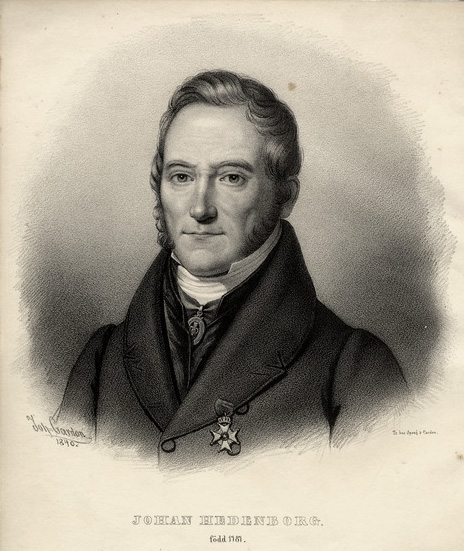
This is a portrait of Hedenborg from his book: Resa i Egypten och det inre Afrika, aren 1834 och 1835 (Journey to Egypt and Inner Africa, in the years 1834 and 1835), Stockholm, 1843.
Three of Hedenborg's drawings from his unpublished manuscript ‘Geschichte der Insel Rhodos von der Urzeit bis auf die heutigen Tage’ (History of Rhodes from ancient times till today), four volumes. Copyright Greek Ministry of Culture.
8- When Italians occupied Rhodes with the other Dodecanese islands in 1912 there seems to have been a government sponsored resettlement programme, no doubt to the annoyance of the locals. In the 1930s there seems to have been a massive Italy backed reconstruction / development programme on the island. Do you think on balance this is a positive legacy considering no doubt some old buildings were also lost in the process?
I think that, all things considered, the legacy of the Italian period can be called positive, although that judgment does not apply to the occupation period itself. Rhodes, and the other islands of the Dodecanese, were provided with a very interesting and unique architectural heritage thanks to them. But it is not only that; the Italians also invested heavily in infrastructure and modernization and laid the foundations for Rhodes as a tourist destination. It was this that made it possible for Rhodes to develop into a holiday destination already soon after the Second World War and to become a magnet for domestic migration thanks to job opportunities. Poverty in Rhodes came to an end much earlier than in many other regions of Greece.
9- Are you conducting any other historical research concerning Rhodes right now? Which era do you think merits study through being perhaps overlooked by others?
At the moment I am researching European travelers to Rhodes in the period after 1522. I think that basically all periods in the history of the island and the city are deserving of more research and interest than is currently the case. It is also very important to come to a more integral historiographic approach and less focus on every community separately. That said, even there is still much to do especially with respect to the Levantine and muslim communities and the Ottoman period. Fortunately, a lot of progress has been made in recent years with regard to the history of the Italian period and that of the Jewish community. But we are not there yet. Far from it.
10- Do you think there is enough material and researchers out there for Rhodes to hold a historical conference or workshop in the future?
I should think so, though it might possible have to be with a wider scope than just from the Levantine perspective, including a longer time period of time, from the hospitallers to the modern era.
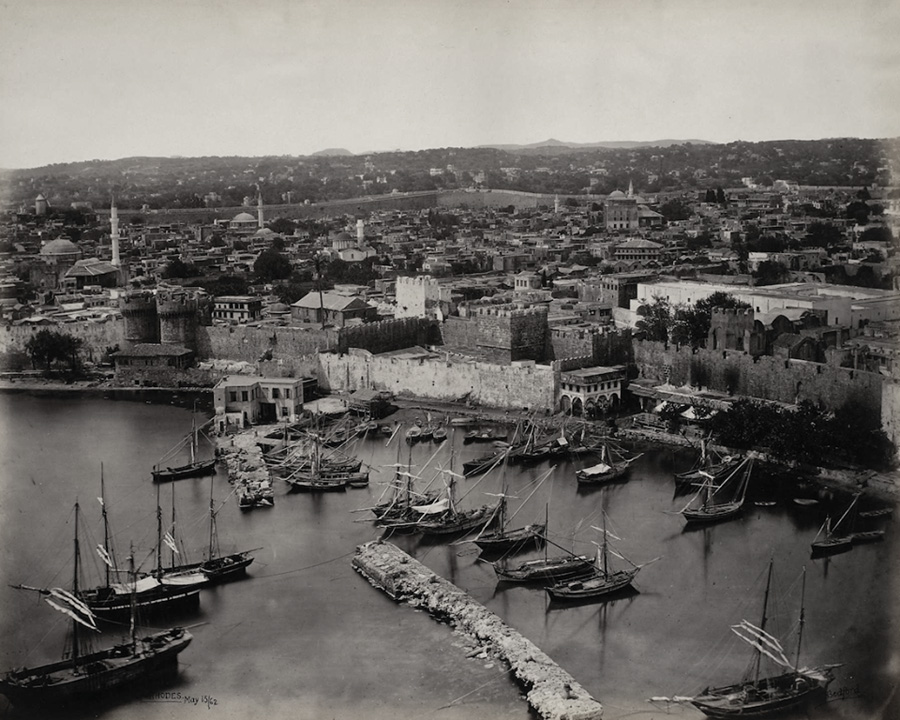
Photograph of Rhodes in 1862, by Francis Bedford.
11- I think you have written your own online guide book to Rhodes in Dutch only. Any chance this could be in other languages in the future?
Its actually a printed guide, the first and still the only one dedicated to the history and architecture of the old town of Rhodes. Indeed in Dutch only, a big commercial mistake as somebody once told me. There are plans for editions in other languages but I do not yet know when these will come into fruition. So, for the moment, if you’re in Rhodes and are interested in Rhodes’ Levantine or other cultural heritage, contact me and I can show you around. If I am in Rhodes, that is.
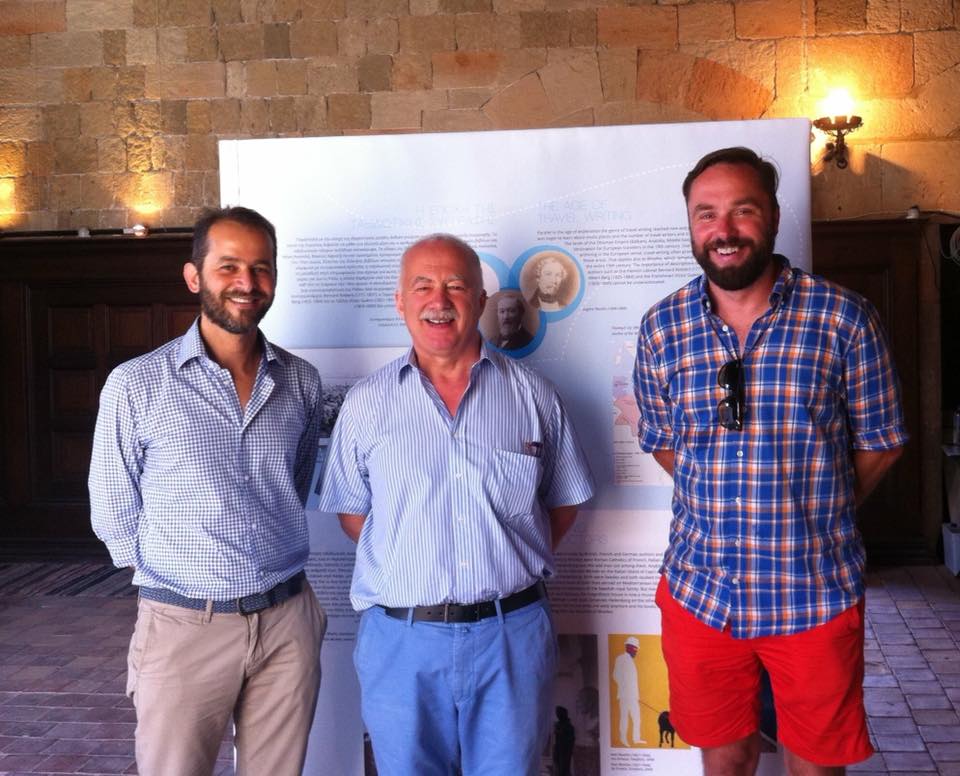
Erik Bruns with historian Philip Mansel in the centre.
Interview conducted by Craig Encer, to contact Mr Bruns:

